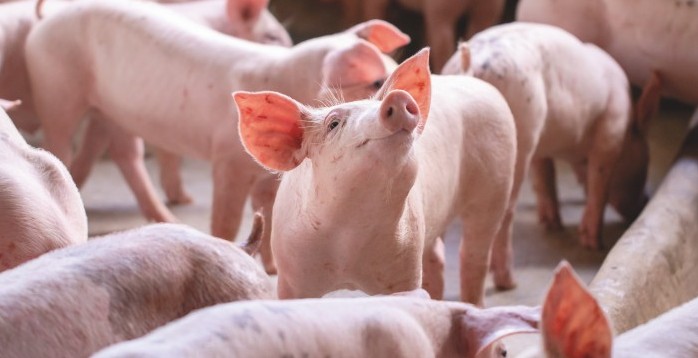One of the pig industry’s asks at last week’s pig crisis summit was for the Government to look at providing financial support for most badly affected producers in England, writes Alice Cooke.
There was no progress on that front. Indeed, So Defra has refused repeated requests for a support package in England, despite direct support having been provided in Scotland and Northern Ireland.
Various EU member states where producers are suffering face a perfect storm of multiple crises, including a supply surplus due to African Swine Fever (ASF), and the ongoing impact of Covid-19, input inflation and international transport disorganisation. This includes a big support package in France, while Ireland has indicated it will be providing support for its pig farmers.
Here, we take a look at the range of support packages being offered elsewhere across the UK and EU.
Scotland
Eligible pig producers in Scotland can now apply for a share of a further £680,000 of funding made available under the Pig Producers Hardship Support Scheme.
This was originally introduced in the summer of 2021, following the temporary closure of the Quality Pig Processors (QPP) plant in Brechin. This was because the Covid pandemic led to staff shortages and a backlog of pigs waiting for slaughter and the abattoir’s licence to export pork to China was suspended.
It was first made available in August 2021 to deliver £715,000 worth of funding to eligible pig producers who supplied QPP between February 8 and March 31 2021.
Farmers were eligible if they could show that they supplied pigs to QPP during those dates and that they suffered a £15 a pig discount on what they would normally have been paid for those animals.
The latest version of the scheme is open for applications until February 20.
Rural affairs secretary Mairi Gougeon said she the extension of the scheme ‘underlines the government’s support for the livestock sector’.
“The COVID-related closure of Brechin abattoir last year and the subsequent loss of the plant’s export licence to China has continued to have a negative impact on pig farmers, during already unprecedented challenging times for the farming industry,” she said.
Northern Ireland
Producers in Northern Ireland have benefited from two tranches of funding provided as a result of Covid-related export problems last year.
Around £2m was initially paid out to pig producers as part of a larger £23.5m fund paid out by DAERA to affected local farm businesses early in the pandemic.
In July 2021, Northern Ireland Agriculture Minister Edwin Poots announced a further £1.6m covid support scheme for pig producers who were affected by the impact of the pandemic on international pigmeat markets from the spring of last year.
Mr Poots said he was hopeful the finding would support affected pig farmers.
However, commenting on whether similar schemes could be introduced in England, a Defra spokesperson said: “The schemes in Scotland and Northern Ireland directly reimbursed pig farmers who had financial penalties imposed on them by processors who had temporarily lost their licence to export to China. Such a scheme would not be appropriate in England, where not all processors lost their export licences.”
France
France was the latest EU member state to announce emergency aid for its pig sector. It has come up with a rescue plan of up to €270m, which includes €15,000 pledged to pig farms with severe cash flow difficulties, which it said would hit their accounts within 15 days.
Structural aid, backed by a commitment to contract under Egalim2, for a maximum amount of 175 million euros, which will complement the compensation for losses on pig farms, according to criteria and modalities to be specified in consultation with professionals.
It has also launched a series of promotional campaigns and renewed its support for the National Initiative for French Agriculture (INAF) mechanism, which is a public loan guarantee for €100 million of allocated credits, and €1 billion of loans.
It has also reinforced its ASF biosecurity measures and imposed strong structural measures to strengthen what it describes as ‘the sector’s resilience to crises’, as well as various measures to support the opening of export markets.
The Republic of Ireland
Irish Minister for Agriculture, Food and the Marine, Charlie McConalogue met with more than 100 pig farmers on February 3 to address the ongoing issues crippling the sector.
They received a commitment of support from the minister, but details of the package are yet to be confirmed.
A spokesperson for Minister McConalogue said he would continue to work to support pig farmers, to explore what can be done, what is available, and what can work.
The Netherlands
Covid disruption funding to pig farmers has now been extended by the Dutch government. This was originally brought in as a fixed-cost compensation programme under the state aid temporary framework.
Belgium
Belgium has used a similar route to The Netherlands, in as much as it has brought in a fixed-cost compensation programme under the state aid temporary framework to get up to €100,000 in emergency grant aid into the accounts of pig farmers coping with income losses.
Poland
Polish farmers have had some €88m in funds delivered under direct grant aid to “effectively address cashflow deficits”, according to the Polish government. These grants are limited to €290,000 per farmer, under EU direct support rules – but there have been loud calls from across Europe for Brussels to reconsider this cap.
Denmark
Meanwhile, while 21 MEPs from ten countries, including Ireland, Belgium, and France want the European Commission to support the EU’s struggling pig farmers, Danish pig farmers are opposing the call from MEPs to support the EU’s cash-strapped pig farmers, saying this will put them at a disadvantage.
Euractiv reports that for Danish pig production, EU support would be a disadvantage. This is because production in Denmark has some of the EU’s lowest production costs, meaning it is better equipped to cope with the current crisis.




